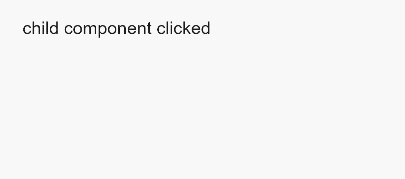JS语法参考
JS文件用来定义HML页面的业务逻辑,支持ECMA规范的JavaScript语言。基于JavaScript语言的动态化能力,可以使应用更加富有表现力,具备更加灵活的设计能力。下面讲述JS文件的编译和运行的支持情况。
语法
支持ES6语法。
-
模块声明 使用import方法引入功能模块:
import router from '@ohos.router'; -
代码引用 使用import方法导入js代码:
import utils from '../../common/utils.js';
对象
- 应用对象
| 属性 | 类型 | 描述 |
|---|---|---|
| $def | Object | 使用this.$app.$def获取在app.js中暴露的对象。 > 说明: > 应用对象不支持数据绑定,需主动触发UI更新。 |
示例代码
// app.js
export default {
onCreate() {
console.info('Application onCreate');
},
onDestroy() {
console.info('Application onDestroy');
},
globalData: {
appData: 'appData',
appVersion: '2.0',
},
globalMethod() {
console.info('This is a global method!');
this.globalData.appVersion = '3.0';
}
};
// index.js页面逻辑代码
export default {
data: {
appData: 'localData',
appVersion:'1.0',
},
onInit() {
this.appData = this.$app.$def.globalData.appData;
this.appVersion = this.$app.$def.globalData.appVersion;
},
invokeGlobalMethod() {
this.$app.$def.globalMethod();
},
getAppVersion() {
this.appVersion = this.$app.$def.globalData.appVersion;
}
}
- 页面对象
| 属性 | 类型 | 描述 |
|---|---|---|
| data | Object/Function | 页面的数据模型,类型是对象或者函数,如果类型是函数,返回值必须是对象。属性名不能以$或_开头,不要使用保留字for, if, show, tid。 data与private和public不能重合使用。 |
| $refs | Object | 持有注册过ref 属性的DOM元素或子组件实例的对象。示例见获取DOM元素。 |
| private | Object | 页面的数据模型,private下的数据属性只能由当前页面修改。 |
| public | Object | 页面的数据模型,public下的数据属性的行为与data保持一致。 |
| props | Array/Object | props用于组件之间的通信,可以通过<tag xxxx='value'>方式传递给组件;props名称必须用小写,不能以$或_开头,不要使用保留字for, if, show, tid。目前props的数据类型不支持Function。示例见自定义组件。 |
| computed | Object | 用于在读取或设置进行预先处理,计算属性的结果会被缓存。计算属性名不能以$或_开头,不要使用保留字。示例见自定义组件。 |
方法
- 数据方法
| 方法 | 参数 | 描述 |
|---|---|---|
| $set | key: string, value: any | 添加新的数据属性或者修改已有数据属性。 用法: this.$set('key',value):添加数据属性。 |
| $delete | key: string | 删除数据属性。 用法: this.$delete('key'):删除数据属性。 |
示例代码
// index.js
export default {
data: {
keyMap: {
OS: 'OpenHarmony',
Version: '2.0',
},
},
getAppVersion() {
this.$set('keyMap.Version', '3.0');
console.info("keyMap.Version = " + this.keyMap.Version); // keyMap.Version = 3.0
this.$delete('keyMap');
console.info("keyMap.Version = " + this.keyMap); // log print: keyMap.Version = undefined
}
}
- 公共方法
| 方法 | 参数 | 描述 |
|---|---|---|
| $element | id: string | 获得指定id的组件对象,如果无指定id,则返回根组件对象。示例见获取DOM元素。 用法: <div id='xxx'></div> - this.$element('xxx'):获得id为xxx的组件对象。 - this.$element():获得根组件对象。 |
| $rootElement | 无 | 获取根组件对象。 用法:this.$rootElement().scrollTo({ duration: 500, position: 300 }), 页面在500ms内滚动300px。 |
| $root | 无 | 获得顶级ViewModel实例。获取ViewModel示例。 |
| $parent | 无 | 获得父级ViewModel实例。获取ViewModel示例。 |
| $child | id: string | 获得指定id的子级自定义组件的ViewModel实例。获取ViewModel示例。 用法: this.$child('xxx') :获取id为xxx的子级自定义组件的ViewModel实例。 |
- 事件方法
| 方法 | 参数 | 描述 | ||
|---|---|---|---|---|
| $watch | data: string, callback: string | Function | 观察data中的属性变化,如果属性值改变,触发绑定的事件。示例见自定义组件。 用法: this.$watch('key', callback) |
- 页面方法
| 方法 | 参数 | 描述 |
|---|---|---|
| scrollTo6+ | scrollPageParam: ScrollPageParam | 将页面滚动到目标位置,可以通过ID选择器指定或者滚动距离指定。 |
表1 ScrollPageParam6+
| 名称 | 类型 | 默认值 | 描述 |
|---|---|---|---|
| position | number | - | 指定滚动位置。 |
| id | string | - | 指定需要滚动到的元素id。 |
| duration | number | 300 | 指定滚动时长,单位为毫秒。 |
| timingFunction | string | ease | 指定滚动动画曲线,可选值参考 动画样式animation-timing-function。 |
| complete | () => void | - | 指定滚动完成后需要执行的回调函数。 |
示例:
this.$rootElement().scrollTo({position: 0})
this.$rootElement().scrollTo({id: 'id', duration: 200, timingFunction: 'ease-in', complete: ()=>void})
获取DOM元素
-
通过$refs获取DOM元素
<!-- index.hml --> <div class="container"> <image-animator class="image-player" ref="animator" images="{{images}}" duration="1s" onclick="handleClick"></image-animator> </div>// index.js export default { data: { images: [ { src: '/common/frame1.png' }, { src: '/common/frame2.png' }, { src: '/common/frame3.png' } ] }, handleClick() { const animator = this.$refs.animator; // 获取ref属性为animator的DOM元素 const state = animator.getState(); if (state === 'paused') { animator.resume(); } else if (state === 'stopped') { animator.start(); } else { animator.pause(); } }, }; -
通过$element获取DOM元素
<!-- index.hml --> <div class="container" style="width:500px;height: 700px; margin: 100px;"> <image-animator class="image-player" id="animator" images="{{images}}" duration="1s" onclick="handleClick"></image-animator> </div>// index.js export default { data: { images: [ { src: '/common/frame1.png' }, { src: '/common/frame2.png' }, { src: '/common/frame3.png' } ] }, handleClick() { const animator = this.$element('animator'); // 获取id属性为animator的DOM元素 const state = animator.getState(); if (state === 'paused') { animator.resume(); } else if (state === 'stopped') { animator.start(); } else { animator.pause(); } }, };

获取ViewModel
根节点所在页面:
<!-- root.hml -->
<element name='parentComp' src='../../common/component/parent/parent.hml'></element>
<div class="container">
<div class="container">
<text>{{text}}</text>
<parentComp></parentComp>
</div>
</div>
// root.js
export default {
data: {
text: 'I am root!',
},
}

自定义parent组件:
<!-- parent.hml -->
<element name='childComp' src='../child/child.hml'></element>
<div class="item" onclick="textClicked">
<text class="text-style" onclick="parentClicked">parent component click</text>
<text class="text-style" if="{{showValue}}">hello parent component!</text>
<childComp id = "selfDefineChild"></childComp>
</div>
// parent.js
export default {
data: {
showValue: false,
text: 'I am parent component!',
},
parentClicked () {
this.showValue = !this.showValue;
console.info('parent component get parent text');
console.info(`${this.$parent().text}`);
console.info("parent component get child function");
console.info(`${this.$child('selfDefineChild').childClicked()}`);
},
}
自定义child组件:
<!-- child.hml -->
<div class="item" onclick="textClicked">
<text class="text-style" onclick="childClicked">child component clicked</text>
<text class="text-style" if="{{isShow}}">hello child component</text>
</div>
// child.js
export default {
data: {
isShow: false,
text: 'I am child component!',
},
childClicked () {
this.isShow = !this.isShow;
console.info('child component get parent text');
console.info('${this.$parent().text}');
console.info('child component get root text');
console.info('${this.$root().text}');
},
}
